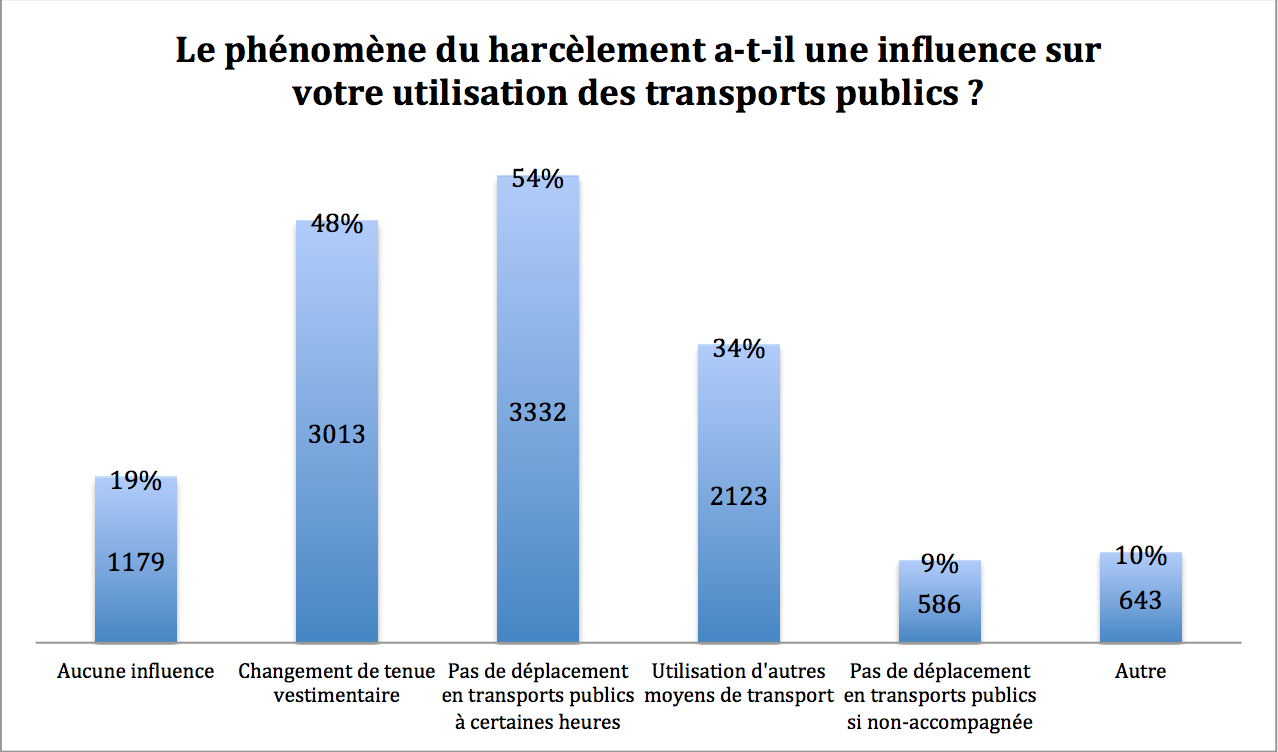Almost all women who use public transport regularly are or have been victims of sexual harassment, according to the latest figures in a survey.

Whistling, insults, exhibition or even excessive flirting… This is what nine out of ten French women are confronted with in public transport, which has become the macabre theater of ordinary sexism. Last year, the High Council for Equality between Women and Men (HCEfh) noted that 100% of women had been victims of sexual harassment at least once in transport. By repeating the survey, the National Federation of Transport User Associations (FNAUT) reports this Wednesday that 87% of women have been confronted with it. A major social problem that persists, despite prevention campaigns. Sexual assaults, insults and threats are the behaviors most suffered by those who regularly use transport. And when they are victims, they are not defended. The FNAUT reveals the lack of reaction from witnesses – only 5% of them intervene during an assault – behavior which “worsens the phenomenon and the feelings of the victims”, recalls the federation. All these acts constitute offenses, even offenses or criminally reprehensible crimes. However, as FNAUT underlines, “the percentage of female respondents who have been victims of harassment who have lodged a complaint is insignificant”. To obtain these figures, 6,200 women answered a questionnaire distributed by the FNAUT.
Almost half of women adapt their dress
Faced with threats related to sexual harassment, 48% of the women questioned adapt their clothing before entering the subway tunnels. Half of them do not use transport after a certain time. But the FNAUT underlines “that there is no precise moment to be harassed, this problem exists all the time”. Finally, 34% of respondents opt for other safer means to get around: bicycle, taxi, or even VTC.
Source: FNAUT
Reclaiming public space
Faced with this, the FNAUT recommends several actions. From education to the training of transport company personnel, the “re-appropriation of public space by women must be encouraged in order to better adapt transport to their needs”. This reappropriation requires collaboration between public services and user associations. In addition, the simplification of complaints “must be implemented”. Because if the women do not file a complaint, it is because the complexity of the procedure is slowing them down. Advice on how to react to a harassment situation would also allow witnesses to know what to do.
.
















-1573048514.jpg)

